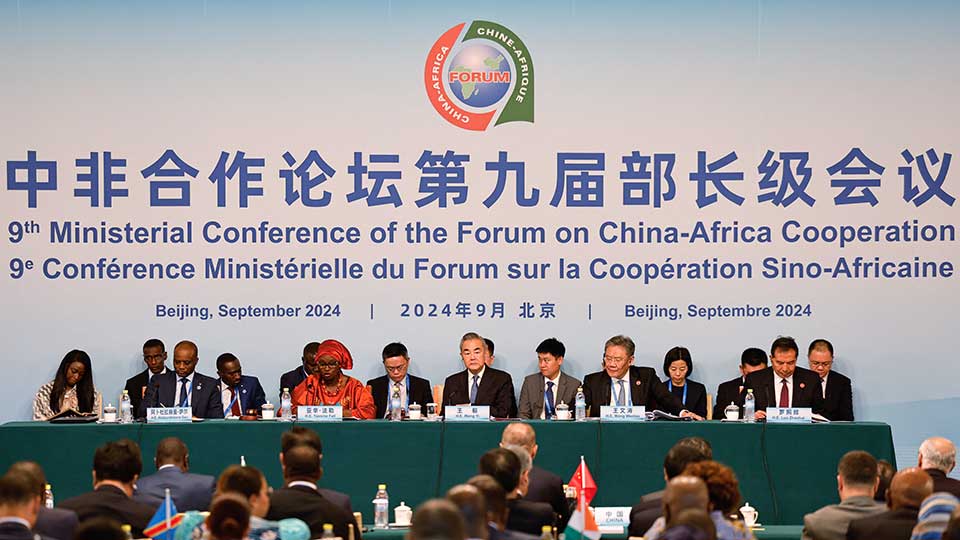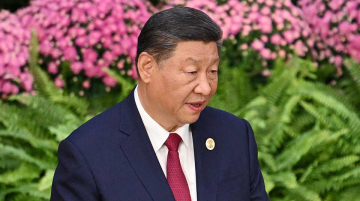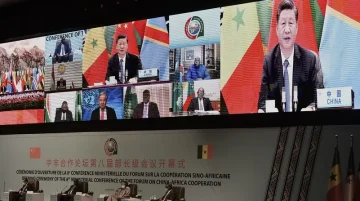
Chinese leader Xi Jinping will host over two dozen African leaders at a lavish dinner in Beijing on Wednesday, kicking off the city’s biggest summit in years with promises of cooperation in infrastructure, energy and education.
China, the world’s second-largest economy, is Africa’s largest trading partner and has sought to tap the continent’s vast troves of natural resources, including copper, gold, lithium, and rare earth minerals.
It has also provided African countries with billions in loans that have helped build much-needed infrastructure. However, these loans have sometimes stoked controversy by saddling governments with huge debts.
Twenty-five African leaders have arrived in Beijing or confirmed attendance at this week’s China-Africa forum, according to an AFP tally, including some whose countries face a rising risk of debt distress.
The forum will kick off Wednesday evening with a family photo and a lavish dinner in the Great Hall of the People. It will then be followed by an opening ceremony, at which Xi will deliver a speech the next day.
Chinese state media lauded Xi as a “true friend of Africa” this week, claiming Beijing’s ties were reaching “new heights” under his stewardship.
A tally of state media reporting showed that as of Wednesday, the Chinese leader had held talks with over a dozen African counterparts in Beijing.
Meeting Tuesday with Bola Tinubu, the president of Nigeria—one of China’s biggest borrowers on the continent—Xi called for great cooperation in the “development of infrastructure, energy, and mineral resources,” state news agency Xinhua said.
That same day, he met with Zimbabwean President Emmerson Mnangagwa and promised cooperation in “investment, trade, infrastructure, mineral resources” and other areas.
He also backed Zimbabwe in its struggle against “illegal sanctions” — imposed by the United States in response to corruption and human rights abuses by the country’s leadership.
Geopolitical Concerns
Analysts say that Beijing’s largesse towards the continent is being recalibrated in the face of economic trouble at home — and that geopolitical concerns over a growing tussle with the United States may increasingly be driving policy.
Zainab Usman, director of the Africa Program at the Carnegie Endowment for International Peace, told AFP that “deepening economic engagement with Africa across the board” is one of Beijing’s key goals this week.
“In specific areas, even where such an expanded engagement may not make economic sense, it will be driven by geopolitical reasons,” she explained.
Usman said one goal may be narrowing the growing trade imbalance between China and Africa by increasing imports of agricultural goods and processed minerals.
“Meeting these African demands is in China’s geopolitical interest to keep them onside in the tussle with the US.”
Analysts say African leaders are likely to seek backing for big-ticket items as they have in the past but also place greater emphasis on debt sustainability.
Alex Vines, head of the Africa Programme at London’s Chatham House, said recent deadly protests in Kenya were triggered by the government’s need “to service its debt burden to international creditors, including China.”
In light of such events, Vines and other analysts expect African leaders at this week’s forum to seek more Chinese investment and more favorable loans.












